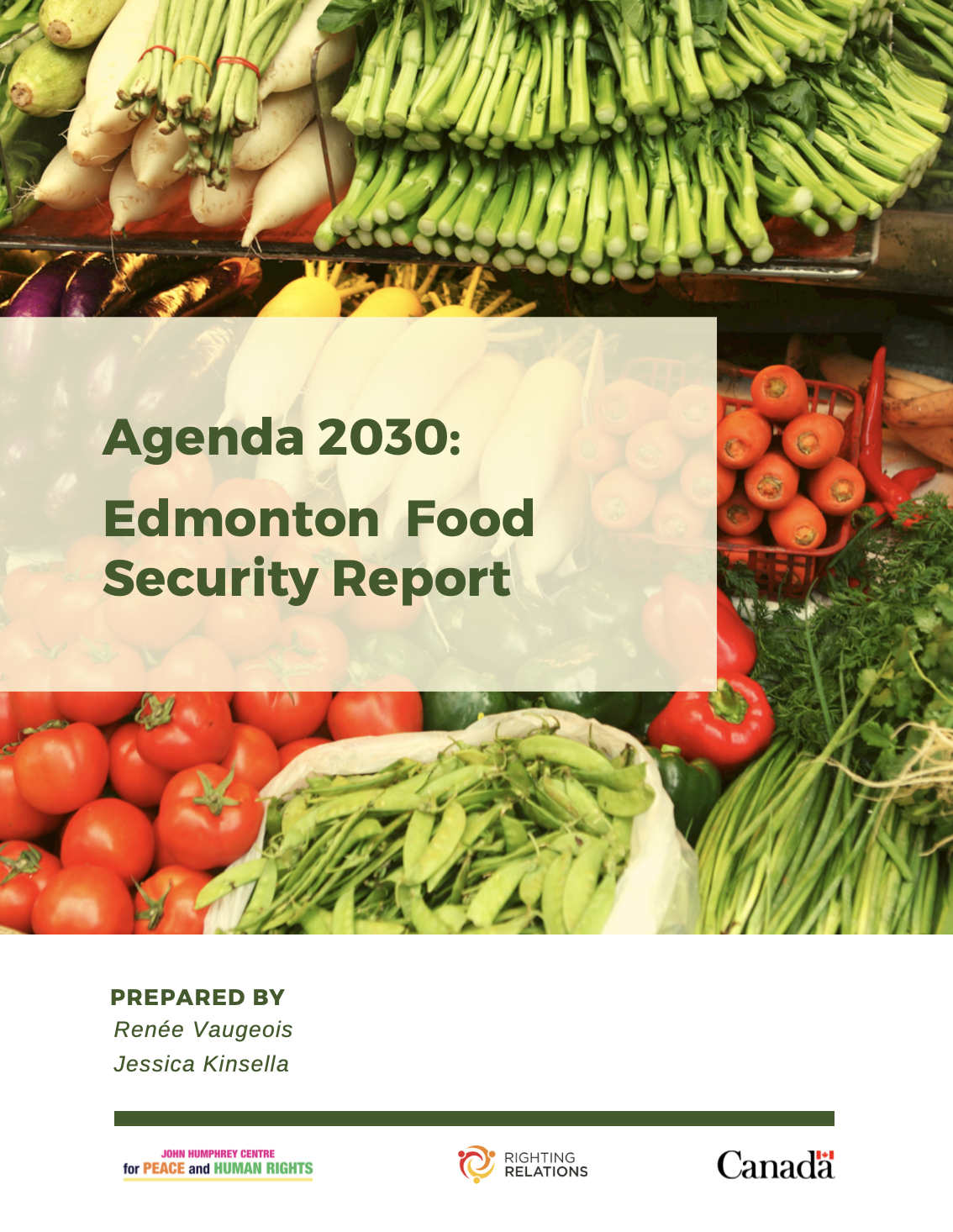Snapshot of Food Security in Edmonton
Food Insecurity has long been an issue that spurred the opening of the first Food Bank in Canada, located right here in Edmonton, Alberta in 1981. Yet after 40 years, we are no closer to ending food insecurity and hunger despite exhaustive campaigns and events throughout the year with the constant ask for donations of money, food and time. One begs the question of why it seems things have only gotten worse in recent years - inflation, increasing levels of poverty and the cascading effects of the pandemic would be some of the common answers you would likely hear from agencies and volunteers. However, the issues stem deeper than that - systemic ideals, policies and barriers collide to create a worsening situation for many with no actions to alleviate these barriers. It is increasingly evident that the level of food insecurity in Alberta, and really, across all of Canada, is deepening without effective actions being taken. The time is to get bold and innovative in our work to recognize the fundamental right to food and eliminate poverty.
Canada, and all levels of government within Canada, are responsible for promoting and protecting human rights for all as enshrined within the International Bill of Rights passed in 1966 at the United Nations and forms the basis of international law and the commitments of states to citizens. This Bill includes two Covenants; the International Covenant on Economic, Social and Cultural Rights (ICESCR) and Covenant on Civil and Political Rights (ICCPR). When looking at poverty, we must take a rights based approach but we must also use these international documents to remind and educate our government and citizens on our obligations to human rights.
According to Article 11 of the ICESCR ; “The States Parties to the present Covenant recognize the right of everyone to an adequate standard of living for himself and his family, including adequate food, clothing and housing, and to the continuous improvement of living conditions. The States Parties will take appropriate steps to ensure the realization of this right, recognizing to this effect the essential importance of international co-operation based on free consent.”
Policy needs to emphasize and focus on the importance that food is a basic human right for survival and well-being. If you don’t address basic needs first, this creates a ripple effect with huge impacts. The positive effects of ensuring access and security for all is overall well-being of an individual, family, household, community, economy and society; the negative is that this as a whole suffers, leading to decreased productivity, revenue, investment and more strain on agencies, healthcare system and individuals and families as they continue to struggle and their well-being deteriorates. Lack of basic needs is one of the root causes of poverty - so by creating opportunities and accessibility to affordable, nutritious food, you can address other issues.
We call for a commitment to the right to food by all levels of government. The federal government must provide leadership and push for a rights based approach within federal policy. The federal government must refocus efforts and build and invest in a new narrative around food.
If you don’t take care of food first; health and nutrition, you have sicker people, an overwhelmed health system and it goes right down the line and ricochets. Then people have to provide care to take care of others, [they] also can’t afford medications. This is the ROOT cause. Food first. Food keeps people healthy and then you can address the other issues.

